12 Home Remedies for Allergies That Work a Treat!
Here’s some of the most potent home remedies for allergies you’ll ever come across. Use each of these amazing natural remedies for hay fever and enjoy fast, long term relief from those dreaded allergy symptoms…
Article by Troy Sawyer (Certified Holistic Nutritionist, Health & Wellness Coach, Sports Nutritionist)
Updated November 2, 2025 -- This post contains affiliate links
Spring is such a beautiful time of year. The plants and trees are blossoming and bursting to life after their winter hibernation. The birds are singing, the bees are buzzing. And, unfortunately, the pollen count is also sky high. So for anyone with an allergy problem, spring is not a beautiful time of year… it’s a nightmare!
The high pollen count then continues on during the summer period, which causes grass allergies for many people, then the pollen count increases once again during late summer and autumn when the weed pollen count rises. So for seasonal allergy sufferers, there’s really not much joy to be had during the warmer months of the year, which is probably why most prefer winter.
Your Allergy Symptoms…
The normal symptoms that go with allergies and seasonal hay fever include those awful red itchy eyes, along with the constant sneezing and a nose that drips like a tap. For asthma sufferers, the symptoms can be much worse (swelling of the bronchial tubes) and can even become life threatening. Seasonally induced asthma is definitely on the rise now and affects over 10 million Americans every year. So being able to control and supress your allergy symptoms is not only important for your daily happiness, it’s also crucial for your overall health and well-being if you’re an asthmatic.
So How Do Allergies Actually Come About?
Allergens are outside particles that your body considers “foreign” and allergies are simply your body’s reaction to these unwelcome invaders. When an allergen enters your system, the immune system basically goes into “attack” mode and triggers the body to release a chemical called histamine (along with other chemicals), which try and immobilize these particles. The itchy eyes, sneezing and runny nose, along with the swollen bronchial tubes, as is usually the case with asthma sufferers, is just your body trying to rid itself of these foreign invaders so you don’t suffer an allergic reaction. The problem is, this response is unwarranted as allergens are rarely harmful.
So what causes the body to instigate this “false flag” response when it’s not needed? Well, allergies such as hay fever are actually a mild form of auto-immune disease, and the main cause of all auto-immune diseases is a poor functioning immune system. So basically, by fixing your immune system you’ll fix your allergy problem! Thankfully, this is easy to do using natural and home remedies.
What About Prescription and Over-The-Counter Medications
for Allergies and Hay Fever?
There are various over-the-counter and prescription medications available that are all designed to help with the symptoms of hay fever and other seasonal allergies. What’s interesting about these medications though is at a recent meeting of the American College of Allergy, Asthma and Immunology, Dr William Berger stated that nearly one third of allergy patients believe their pharmaceutical medications are useless and don’t actually work!
Then to top this off, you have the unwanted side effects. Drowsiness and nasal irritation are the two most common, followed by dizziness, upset stomach, blurred vision, headache, irritability and constipation.
If you happen to go with steroid medications you’ll have to deal with weight gain, fluid retention, diabetes, cataracts, muscle weakening and bone thinning (osteoporosis).
Then you have allergy shots, which are probably your final and last resort if you find that none of the other medications are working. This involves the regular injection (or “under the tongue” medication) of small amounts of the allergen you’re allergic to. But adverse reactions and side effects to this treatment can be so severe that you have to remain at the doctor’s surgery for half an hour afterwards, just in case! And the jury is still out on whether this treatment is even effective anyway.
Because you’re here searching for home remedies for allergies and hay fever, it’s highly likely you’ve already tried some or most of these pharmaceutical treatments and found they either didn’t work very well or the side effects were just as bad as the allergy itself. Or you’ve looked into some of these medications and decided the cons far outweigh the pros and decided to give them a miss. Either way it doesn’t matter. You’ve now come to the right place to treat your allergies naturally, and at the same time, get yourself a whole lot healthier as well!
Top 12 Home Remedies for Allergies and Hay Fever
Relief…
When it comes to successfully treating hay fever and other allergies, there’s basically a two pronged approach you must use. Firstly, you need to recharge and boost your immunity so you lessen - then eventually - prevent your immune system from going into attack mode and releasing histamine and other allergic response chemicals. This will treat and over time, stop your allergies and the horrible symptoms that accompany them, from returning (if you’re consistent and stick with our recommendations). The second approach is more for relieving your allergy symptoms right now if you’re currently suffering from a bout. So be sure to use a combination of both for best results.
So here’s 12 of the best home remedies for allergies in our listed order of importance...
Natural Remedies for Allergies #1 – Apple Cider vinegar
(ACV)…
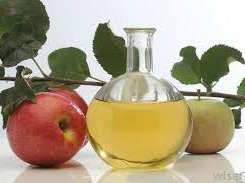
This is definitely our first choice. Boosting your immune system is the single most important thing you can do to successfully treat and cure your allergies. And 80% of your immune system is actually located in your gut, so by getting your gut healthy, you will naturally get your immune system healthy! Even Ancient Chinese Medicine agrees with this. They believe that allergies are almost always related to gut and intestinal problems, so once you remedy this, you remedy annoying seasonal allergies such as hay fever or allergic rhinitis.
So how does apple cider vinegar actually fit into this? Well, ACV is a very powerful gut healer and immune booster. It also helps to promote the growth of “friendly” bacteria (probiotics) in the gut, which is another excellent home remedy for all types of allergies (our #2 pick in fact). Apple cider vinegar is also rich in potassium and magnesium. A deficiency of both these minerals has been linked to seasonal allergies and even asthma. In addition to this, ACV helps to soothe the lungs and bronchial walls and break down phlegm.
The Best Apple Cider Vinegar to Take...
When you buy your apple cider vinegar, always make sure it’s organic ACV and still contains the mother apple (it will tell you on the bottle). This is extremely important for potency and effectiveness (Bragg’s ACV is our favourite). Mix two tablespoons of ACV in a glass of warm, filtered water and drink 10 minutes before each meal. If you find that you don’t like the taste (some people actually heave from ACV), you can substitute the liquid for the ACV capsules instead. Apple cider vinegar is not expensive either so you can continue to take it every day without breaking the bank. The fact is, if you really want to cure your allergies for good then this is the approach you must follow. Don’t listen to the ridiculous recommendations about taking ACV only while you have an allergy. This life saving food is so good for you and so beneficial to your overall health, you need to be taking it every single day for the rest of your life!
Home Remedies for Allergies #2 – Good Bacteria (Probiotics)…
This remedy follows on from apple cider vinegar. As you now know, probiotics are essential for gut health and immune health. Without enough beneficial bacteria growing and thriving in the digestive system, the bad (and the very bad) bacteria take over and intoxicate your body. They literally infect your organs by releasing powerful and extremely toxic “buds” into your blood stream. The immune system quickly becomes overwhelmed when under this severe form of duress and many health experts even believe that allergies (including food allergies) may be the result of this immunity breakdown (this is just speculation and hasn’t been confirmed yet).
So if you regularly suffer from allergies such as hay fever then there’s a pretty good chance that you also get sick often (as a result of your low immunity). But when you take in enough of the good bacteria, they quickly go to work and kill off these harmful organisms then take up residence themselves in the gut. Over time the immune system is boosted and recharged significantly (remember, 80% of your immune system is located in your gut) and your overall health and well-being is also restored. Of course, you will also find your low immunity problems - such as your allergies - disappearing for good as long as you maintain a constant and healthy supply of probiotics in your digestive system.
In addition to this, one particular type of probiotic (lactobacillus) produces hydrogen peroxide as a natural by-product. Hydrogen peroxide is also an extremely effective remedy for allergies! (See our #9 home remedy).
A couple of studies have been able to confirm the benefits of probiotics for allergy sufferers: A 2008 study found participants who took probiotics during allergy season had lower levels of a specific antibody thought to trigger allergy symptoms, and at the same time, they had higher levels of an antibody researchers believe may help protect against allergic reactions. Other studies have found that giving probiotics to newborns and expectant mothers may help to protect them from childhood allergies.
Best Ways to Get Your Probiotics…
So the basic premise is this... unless you consciously take in enough good bacteria every day the bad bacteria will quickly take over and thrive in your body (which has already likely occurred in your case). To fix this and then stop it from happening again, there’s two things you need to do. Firstly, find yourself a good quality probiotic supplement and be sure to take it every day without fail. Secondly, you need to start fermenting and culturing your own “probiotic rich” food and drinks and consume them daily. Remember this… you can never have enough probiotics and you can never overdose on these marvellous little creatures. In this case, “the more the merrier” rule definitely applies!
To find a good quality probiotic supplement you can visit your local health food store or go online to places such as Amazon. For more information on the health benefits of cultured foods, together with reputable links to making your own probiotic rich foods (which is not hard to do), take a look at Katie Wells, aka "The Wellness Mama's" terrific website here… WellnessMama.com.
Natural Remedies for Allergies #3 – Omega-3 and Omega-6
Essential Fatty Acids…
Let’s first begin with omega-3s. Now these EFA’s don’t just help fight inflammation type diseases such as arthritis and psoriasis, they also help fight allergens! In the journal Allergy, they published a German study that showed patients who regularly consumed omega-3 rich foods were far less likely to suffer allergies and the accompanying symptoms compared to people who rarely ate these foods. Another Swedish study, also published in the Allergy journal, found that kids who regularly ate fish before the age of one had a much lower incidence of allergies by the time they reached age four. Mercola.com
Then we have Omega-6 EFA’s, which are also potent natural remedies for all types of allergies, especially hay fever. Omega-6 help the body produce powerful chemicals known as prostaglandins. These hormone-like substances block the body’s production of the chemical histamine, which as you know, is a primary culprit for allergy symptoms. Research has also linked low levels of prostaglandins to certain types of asthma. It’s been discovered that when prostaglandin levels are normal, the muscles in the lungs are able to relax and blood flow is increased.
Best Sources of Omega-3 and Omega-6 EFA’s…
For omega-3’s you still can’t go past cold water fatty fish, however, you do need to be careful of heavy metal contamination. So before you buy fish or fish oil supplements, be sure to check your sources first. Other good sources of omega-3 are krill oil, green lipped mussels, evening primrose oil, walnuts, eggs, flax seeds and flaxseed oil. For omega-6, evening primrose oil is clearly the best, followed by walnuts, sesame seeds, safflower seeds and Brazil nuts. Our bodies do need more omega-3 than omega-6 though. For this reason, stay away from all processed vegetable oils (they’re toxic anyway) and instead, stick with the foods listed above, especially evening primrose oil.
Home Remedies for Allergies #4 – Eat Locally Produced
Honey…
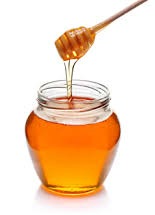
It’s thought that regularly eating honey that’s produced in your local area helps you to build up an immunity against the very pollen (birch pollen) you’re exposed to that’s causing your allergy symptoms. However, many so-called “health experts” believe this theory is nothing but a load of crock. The problem for the experts though is when allergy sufferers do have authentic local honey (at least 1 tablespoon daily) their allergy symptoms improve. And even a published study back in 2011 was able to add some critical evidence to this growing belief…
In the study, 44 people with medically diagnosed birch pollen allergy consumed either authentic birch pollen honey or regular honey every day for five months during the regular birch pollen allergy season. The control group (another 17 patients) were only using their normal allergy medication to control their symptoms. The study found that compared to the control group, the people taking the birch pollen honey experienced twice the amount of asymptomatic days (showing no symptoms), along with an actual 60% reduction in their allergy symptoms, 70% less days with severe symptoms were also experienced, and as a result, this group had a 50% reduction in their antihistamine use!
The other big benefit of honey is it also helps to promote the growth of friendly bacteria in the digestive system, which further enhances the effectiveness of this amazing super food for treating allergies and their related symptoms. Find yourself a good supplier of birch pollen honey in your local area and consume at least 1 tablespoon every day.
Natural Remedies for Allergies #5 – Hot Peppers…
If you regularly eat these foods then you’ll already know that nothing cleans out the whole respiratory system quite like some hot peppers! Hot chilli peppers (especially cayenne pepper), hot mustard and horseradish are all excellent natural decongestants and sinus clearers. My personal favourite though is cayenne pepper. This stuff works like magic to clear up sinusitis and just about every respiratory problem you may encounter. It also boosts the immune system very strongly and is extremely good for your heart. You can either buy it in powder or capsule form to have internally (which is very important of course), or you can find it in some allergy relief nasal sprays combined with horseradish. Just remember, these peppers are hot so if you don’t eat them regularly, it’s a good idea to start off small and work your way up.
Home Remedies for Allergies #6 – Coconut Oil…
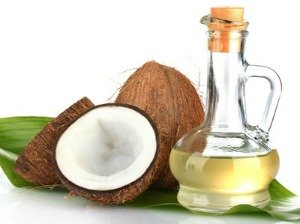
Coconut oil is excellent for gut health (yes, I know I’m back onto this one but it’s just so important for preventing and curing allergies). It improves digestion by soothing the lining of the gut and promoting the growth of good bacteria. When your gut flora is out of balance (too much bad bacteria) the body produces extra histamine, which of course, is an allergy sufferer’s worst enemy. But because coconut oil helps your gut probiotics to grow and thrive and kill off the bad bacteria, the overproduction of histamine is greatly reduced, which is welcome news for all allergy sufferers.
Folks, this super food is a very powerful “cure all” and will really do wonders for you or your child’s allergies. And the great thing is, kids love it so it’s easy to get them to eat it! You can buy virgin coconut oil online or from any good health food store. 1-2 tablespoons (or more) every day for children or adults can be safely consumed. You can never really overdose on coconut oil anyway and it’s not harmful so go nuts with it if you want! If someone did happen to have too much (like say, one of the kids got into the jar and ate the whole lot for some absurd reason) about the worst thing that would happen is they'd end up with a slight dose of the runs. So nothing too detrimental?
Natural Remedies for Allergies #7 – Vitamin D…
There really is no disease, ailment, or health problem that can’t be helped with a little vitamin D. And allergies such as hay fever certainly fit into this. But where vitamin D really comes to one’s aid is in the treatment of asthma. It’s been noted that children with low serum vitamin D levels are more likely to be hospitalized for asthma related problems than kids with normal levels. And studies have also shown that low vitamin D levels in children are closely linked to the actual severity of asthma and allergy symptoms.
So to receive your daily amount of vitamin D, you need to either get out in the sun or take vitamin D3 supplements. For those of you who are still weary of sun exposure, supplements are the safer option. The minimum dose is around 1000 IU for kids and 2000-3000 IU for adults.
Home Remedies for Allergies #8 – Quercetin…
Quercetin is a potent bioflavonoid and natural antioxidant that works to stop the release of histamine in the body. It’s also a very good anti-inflammatory, and as such, can help to relieve the inflammatory symptoms of allergies. Foods that contain quercetin include; tomatoes, broccoli, lettuce, apples, berries, red grapes, citrus fruits, onions and tea. However, eating these foods alone will not be enough to get your daily supply. You need around 1000 mg’s a day for it to work effectively for allergy relief so supplementation will be required. Quercetin is also best taken at least 4-6 weeks before the start of allergy season. You can find quercetin online or at any good health food retailer.
Natural Remedies for Allergies #9 - Hydrogen Peroxide...
Hydrogen peroxide is a safe, cheap and very effective remedy that works a treat for reducing and clearing up the symptoms associated with allergies and hay fever. It quickly flushes out and destroys the irritants in the sinus cavities that cause the runny nose and build up of pressure. Hydrogen peroxide also kills any infections that may be accompanying your allergies.
There are two ways to use the hydrogen peroxide treatment... as a nasal spray and an under-the-tongue spray.
To use as a nasal spray, first purchase a bottle of 3% food grade hydrogen peroxide (such as this one), then mix up a solution comprised of four parts filtered water and one part 3% food grade hydrogen peroxide (not the 35% solution). Get yourself a sinus spray (pump) and apply 2-3 pumps up each nostril, then allow any gunk to drain out of the sinuses for a few minutes before blowing your nose. Do this four times a day or as often as required.
For internal use, simply pump 4-5 sprays of the solution under the tongue. Repeat this process 2-3 times daily. It works like magic! Just remember, only the 3% food grade hydrogen peroxide should ever be used.
Home Remedies for Allergies #10 – Herbs…
Herbs have a long history in providing relief from allergy symptoms, including the awful sneezing, runny nose and constant itching. Some are very good remedies for hay fever and other seasonal allergies, while others are not so good. Here are the ones that have been found to work the best…
Stinging Nettle: This is probably the best herb for treating allergy symptoms and really does work a treat! It’s a powerful natural antihistamine and doesn’t cause drowsiness or dry mouth like pharmaceutical antihistamines do. Take 300 mgs of stinging nettle extract daily for best results.
Butterbur: Butterbur blocks antihistamine and naturally reduces inflammation. Studies have found this herb to be effective at relieving the most common allergy symptoms such as itchy eyes, sneezing, sinus congestion and headaches. In fact, a British study found butterbur to be just as effective as Zyrtec for relieving the symptoms of hay fever, but without the side effects. A word of caution though, because butterbur is part of the ragweed family, it’s recommended anyone allergic to ragweed or chrysanthemum avoid this herb.
Nettle Leaf: This herb is also an excellent natural antihistamine. You can either make up a nettle tea to drink twice daily or take nettle leaf capsules.
Goldenseal: The active ingredient in goldenseal has powerful antibacterial and immune-boosting properties, which makes it one of the very worthy home remedies for hay fever and allergies. You can either buy goldenseal as a herbal tea or in capsule form.
Green tea: Builds up the immune system strongly and blocks the production of histamine. Either drink 4-6 cups of green tea daily or take green tea extract.
Peppermint tea: Relieves nasal and sinus congestion, along with the coughing associated with hay fever and other allergies. Be sure to drink peppermint tea cold for best results.
Ginger: One of our favorites! Ginger is a natural antihistamine and contains some very potent immune-enhancing properties. It also helps to break up chest congestion and remove phlegm. A nice honey, lemon and ginger tea can be just what the doctor ordered for an acute allergy outbreak.
Natural Remedies for Allergies #11 – Neti Pot, Saline Spray,
Steaming…
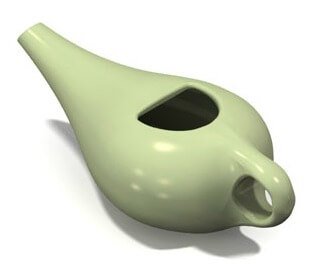
Neti Pot: These handy little “Aladdin’s lamps” are fast becoming the nasal flush of choice world-wide. They are excellent for flushing out allergens (such as pollen) and loosening mucous from the nasal cavity. And what’s really good is they’re inexpensive to buy and very simple to use. Just dissolve half to one teaspoon of pink rock salt or sea salt into one cup of boiled distilled water. Once cooled, transfer into the neti pot and use to pour through one nostril, allowing the salt solution to drain out the other nasal cavity, then repeat the same process with the other nostril. You can also add some betadine and/or baking soda to the mix for even better results (see our natural remedies for sinus infection article for more information on this).
Saline (Salt) Spray: This basically works the same as a neti pot rinse but is less messy. You can buy premixed saline nasal sprays from most drug stores (pharmacies) or online. 1-2 squirts up each nostril when required will give the desired results.
Steaming: This is one of the easiest home remedies for allergies. It involves sticking your head over a bowl of hot water and carefully inhaling the steam. Adding a few drops of eucalyptus oil to the water helps to soothe the mucous membranes and will provide even more relief. Also, draping a towel over the back of the head helps to lock in the steam, which further enhances this age-old remedy.
Home Remedies for Allergies #12 – Dietary Changes…
The foods you should be eating more of and the foods you should be avoiding for allergy relief is extremely crucial. All refined and processed foods, especially refined sugary foods (lollies, cakes, biscuits, etc) and foods that contain yeast (breads, alcohol, etc), must be avoided. The main problem with these foods is they feed the bad bacteria in your digestive system and supress the growth of good bacteria. All mucous-forming foods should also be avoided for obvious reasons. These include; all dairy foods (milk, cheese, ice-cream and dairy yoghurts), flour products, fried foods and chocolate. Gluten can also be a major problem for allergy sufferers so any foods that contain gluten are best reduced or eliminated altogether.
For the foods to eat more of for allergy relief, it’s fairly simple. Plenty of fresh fruit, veggies, herbs, berries, nuts and seeds (organically grown if possible). In addition to these, don’t forget your coconut oil every day and be sure to use almond milk or coconut milk as a substitute for cow’s milk. And of course, eat and drink plenty of your probiotic rich cultured foods and liquids to keep your insides healthy!
Don’t Forget About Exercise Either…
One of the remedies for allergies that rarely ever gets mentioned is exercise. But research has shown that this wonderful practice helps to alleviate allergies, particularly hay fever, a great deal. Especially in kids!
A 12 year German study found that inactive kids suffered twice the amount and rate of hay fever as active kids. And an English survey found that people who do suffer with hay fever, but exercise regularly, have much milder symptoms than their couch potato counterparts. And the side benefit of regular exercise is it builds-up and enhances your immune system and reduces your stress levels quite significantly. So don’t just brush this one off, get out there and get into it!
Use These Home Remedies for Allergies and Be Free From Hay Fever for Life!
Well that ends this article on natural remedies for allergies. We firmly believe you now have every bit of information you need to finally kick your allergies in the proverbial butt! Naturally, you need to put this information into practice for it to work, but we're confident you will.
Why?
Because hay fever and other allergies just plain suck right?
Anyway, try and utilize and use as many of the home remedies we list as possible for best results. And at the end of the day, just remember your gut… that’s the key to curing your allergies for good!
Good luck and all the best.
P.S. Because allergies and sinus infection usually go hand in hand, we suggest you take the time to read our “natural remedies for sinus infection” article. You can click on the link below to go there.
Go from home remedies for allergies to natural remedies for sinus infection
Recent Articles...
-
5 Powerful Natural Remedies for Anger & Irritability...
Nov 15, 25 09:00 AM
Want to be able to control your stress & anger naturally without having to resort to anger management counselling or harmful pharmaceutical medications? Then here's 5 "must use" tips & home remedies y… -
8 Sure-Fire Way's to Get Rid of Jock Itch Fast!
Nov 09, 25 11:00 AM
Awesome! Here's 8 of the best home remedies for jock itch that are guaranteed to get rid of this nasty rash in a hurry and for good!
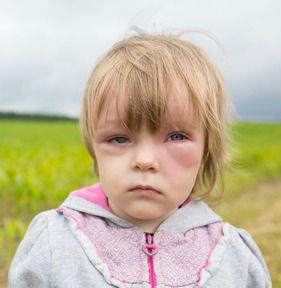
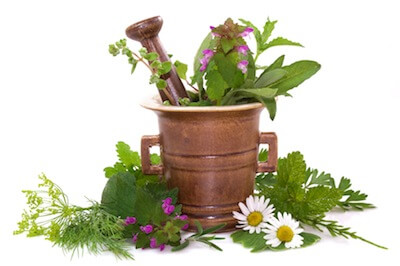
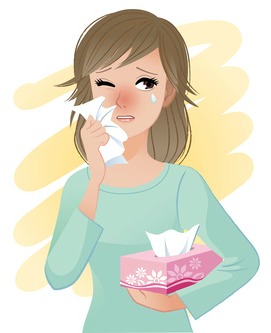
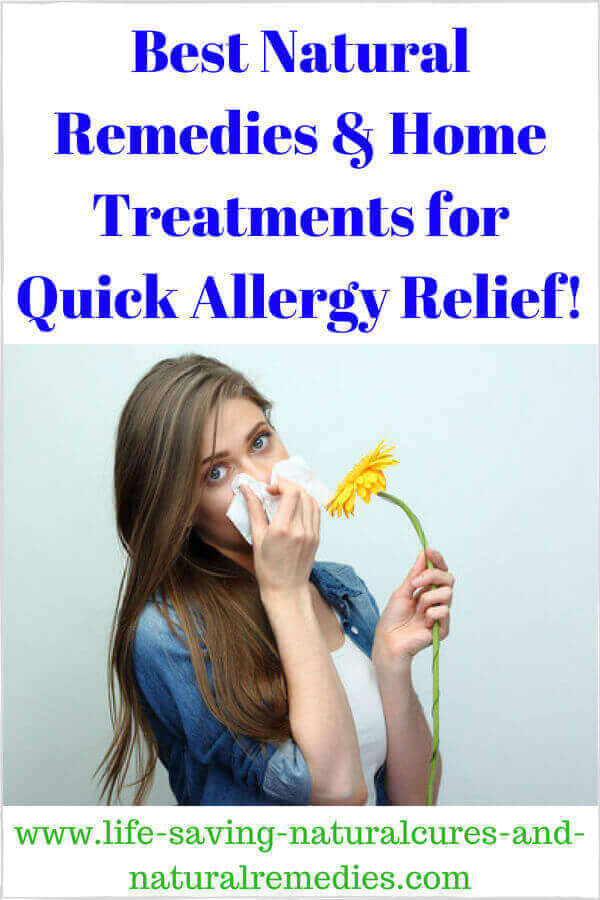
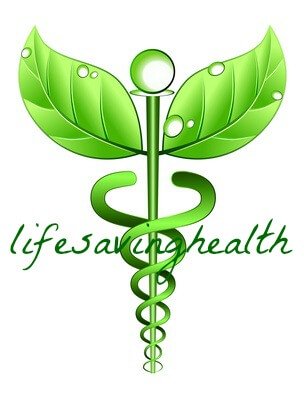
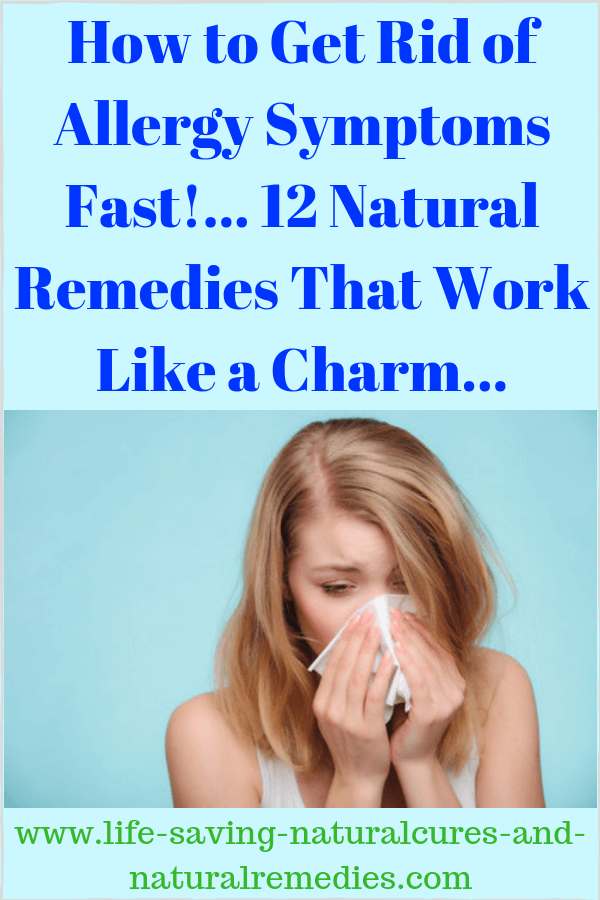
Yes, We Value Your Comments and Opinions...
Ask a question or have your say on what you've just read by leaving us a comment in the box below...